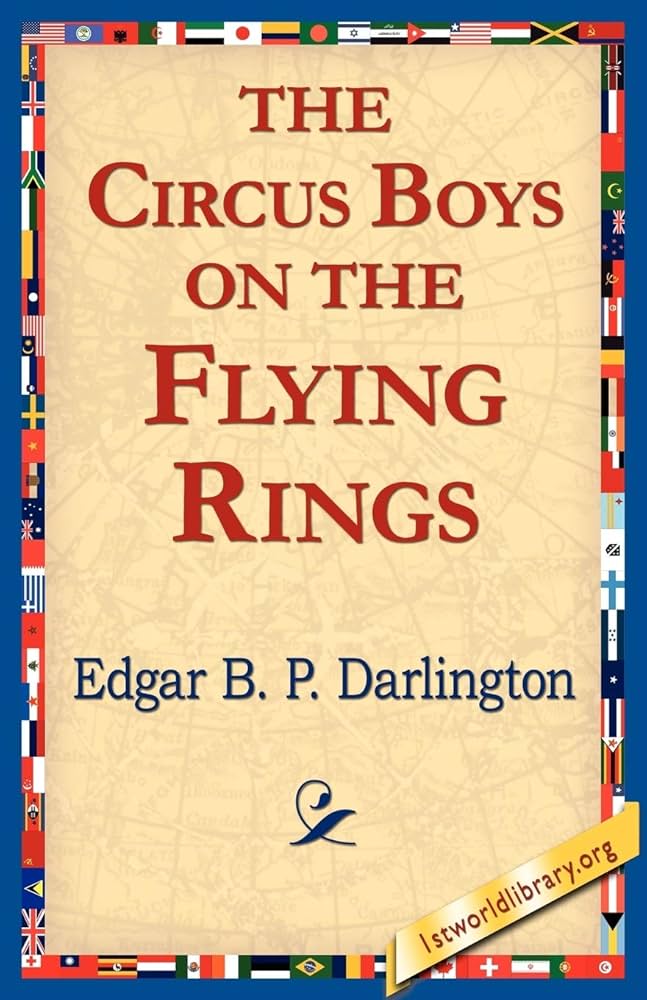Chapter III — The circus boys on the flying Rings
byChapter III opens on a note of quiet defiance as Phil Forrest walks away from the only home he’s ever known, unsure of what lies ahead. With the finality of his uncle’s harsh words echoing behind him, he steps through the village, past fences and fields, until distance dulls the sting. A hayfield becomes his sanctuary for the night, offering shelter from judgment and a moment to gather his thoughts. The loneliness doesn’t break him—it shapes him. Beneath the open sky, he reflects not on what he’s lost but on what remains within him: the will to begin again. His humor remains intact, even as uncertainty settles in. By morning, the dew clinging to his clothes reminds him that dreams need effort, and pride won’t fill an empty stomach. And so, Phil rises, shakes off the night, and chooses action over despair.
A trout stream nearby becomes his mirror and basin. The splash of cold water on his face sharpens his mind and refreshes his spirit. Starving but too proud to beg, he finds a different route back toward the village, avoiding his uncle’s house with purpose. Along the way, he encounters Mrs. Cahill, who offers a welcome pause to his solitude. Her kitchen smells of comfort and her voice, familiar and kind, cuts through the emptiness like morning sun through mist. Phil, grateful but determined, offers to earn his breakfast, reinforcing the values that have anchored him despite hardship. As he chops firewood, muscles aching and hands blistered, something in him steadies. For the first time since leaving, he feels the power of choice, of shaping a life with his own hands rather than accepting what’s been forced on him.
Mrs. Cahill, no stranger to life’s misfortunes, sees more than a tired boy swinging an axe. In their conversation, Phil learns there may be more to his family’s story—particularly the question of his inheritance. Her gentle but pointed questions spark a suspicion in Phil’s heart, planting a seed that will grow with every step forward. Could Uncle Abner have kept something hidden? It’s a notion too murky to grasp fully, but the thought lingers like smoke. In offering food and care, Mrs. Cahill also gives him something more valuable: a renewed sense of worth and a reason to seek the truth. For Phil, this is no longer just about survival—it’s about uncovering what he truly deserves.
Later that morning, as the village stirs with the energy of a school day, Phil and Teddy meet up, walking together like any other morning—but everything feels different. School is nearly over, and the future waits without maps or guarantees. Teddy, loyal and quick-witted, becomes more than a friend; he is Phil’s co-dreamer, someone who believes in the promise of new beginnings. Their chatter carries a note of optimism, grounded in the sense that anything is better than standing still. Phil doesn’t need a grand plan—only momentum. Each step away from the past feels like a step closer to becoming the person he imagines himself to be. And though the day is still early, the path forward is beginning to form.
The strength of Phil’s character is mirrored in small decisions: to work for his food, to walk tall even when tired, and to hope in the face of uncertainty. In rural America at the turn of the 20th century, boys like Phil often had to grow up quickly, and often alone. Yet even within those limitations, some, like Phil, carved their identity through resolve and courage. A generation later, stories like his would inspire others, teaching that integrity and action often matter more than circumstance. His journey may have started with rejection, but now it is shaped by will. Chapter III doesn’t just show a boy walking away from his past—it shows a boy walking into his purpose.

